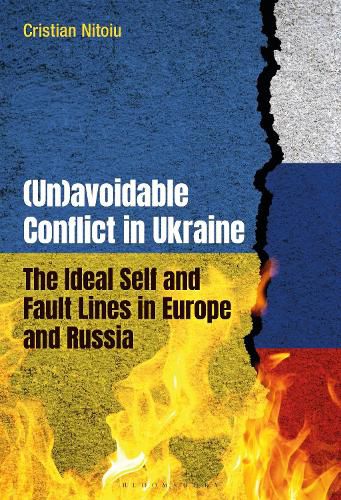Readings Newsletter
Become a Readings Member to make your shopping experience even easier.
Sign in or sign up for free!
You’re not far away from qualifying for FREE standard shipping within Australia
You’ve qualified for FREE standard shipping within Australia
The cart is loading…






Taking a conceptual approach to European-Russian relations in the post-Cold War era, this book traces how each side's "ideal self" came into conflict with "fault lines" in international politics.
Russia's 2022 full-scale invasion of Ukraine is not only a symptom of conflict taking over the European continent but also a point of no return that will be difficult to roll back. Could the state of conflict on the European continent have been avoided?
To understand the nature and evolution of conflict with Russia, this book presents a theoretically informed discussion of the way relations between the European Union (EU) and Russia deteriorated beyond repair during the more than three decades since the collapse of the Soviet Union. First, the book develops the concept of ideal self of states and international organisations like the EU, which posits that a series of ideal perceptions about how the self should act in the world order drives the behaviour of states and their policymakers. Second, the book turns to the study of fault lines, or spaces of divergence in the world order that harbour the potential for conflict.
With these two theoretical toolkits, the book shows how leaders in the EU and Russia, by February 2022, came to view conflict as a feasible, preferable, and possibly the only option available to them. Even though neither the EU nor Russia had desired conflict, both made little effort to avoid it. As a result, the European continent has sleepwalked into conflict, with the potential for that conflict to spill over from Europe and escalate beyond a point of no return between the West and its global challengers.
$9.00 standard shipping within Australia
FREE standard shipping within Australia for orders over $100.00
Express & International shipping calculated at checkout
Taking a conceptual approach to European-Russian relations in the post-Cold War era, this book traces how each side's "ideal self" came into conflict with "fault lines" in international politics.
Russia's 2022 full-scale invasion of Ukraine is not only a symptom of conflict taking over the European continent but also a point of no return that will be difficult to roll back. Could the state of conflict on the European continent have been avoided?
To understand the nature and evolution of conflict with Russia, this book presents a theoretically informed discussion of the way relations between the European Union (EU) and Russia deteriorated beyond repair during the more than three decades since the collapse of the Soviet Union. First, the book develops the concept of ideal self of states and international organisations like the EU, which posits that a series of ideal perceptions about how the self should act in the world order drives the behaviour of states and their policymakers. Second, the book turns to the study of fault lines, or spaces of divergence in the world order that harbour the potential for conflict.
With these two theoretical toolkits, the book shows how leaders in the EU and Russia, by February 2022, came to view conflict as a feasible, preferable, and possibly the only option available to them. Even though neither the EU nor Russia had desired conflict, both made little effort to avoid it. As a result, the European continent has sleepwalked into conflict, with the potential for that conflict to spill over from Europe and escalate beyond a point of no return between the West and its global challengers.